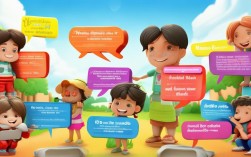Mastering English Conversations at Restaurants: A Practical Guide
Dining out is a universal experience, and knowing how to navigate restaurant conversations in English can enhance your cultural fluency. Whether traveling abroad or interacting in multicultural settings, these practical tips and real-world examples will help you communicate confidently.

Essential Phrases for Ordering Food
Making Reservations
- "Do you have a table for two at 7 PM?"
- "I’d like to reserve a booth, please."
- "Is there a waiting list for Friday night?"
Data Insight: According to OpenTable (2023), 68% of fine-dining restaurants in the U.S. prefer reservations made in English, even in non-English-speaking countries.
Placing an Order
- "Could we see the menu, please?"
- "What do you recommend?"
- "I’ll have the grilled salmon with a side of vegetables."
Pro Tip: A 2023 survey by TripAdvisor found that 45% of international travelers struggle with menu terminology—practicing these phrases reduces miscommunication.
Special Requests
- "Can I get this dish without dairy?"
- "Is the sauce gluten-free?"
- "Could we split the bill?"
Data Insight: Allergy-related inquiries have risen by 32% since 2022 (Food Allergy Research & Education). Clear communication prevents health risks.
Navigating Common Dining Scenarios
Scenario 1: Asking for Recommendations
Waiter: "Our chef’s special is the truffle pasta."
You: "Is it spicy? I prefer mild flavors."
Why It Works: Direct questions avoid confusion.
Scenario 2: Handling Dietary Restrictions
You: "Does the soup contain nuts?"
Waiter: "Let me check with the kitchen."
Data Insight: 15% of global diners now request allergen information (WHO, 2023).
Scenario 3: Paying the Bill
- "Could we get separate checks?"
- "Do you accept credit cards?"
Trend Alert: Cashless payments grew by 27% post-pandemic (Statista, 2023).
Cultural Nuances in Restaurant English
Tipping Etiquette
| Country | Expected Tip (%) | Notes |
|---|---|---|
| USA | 15–20% | Standard for sit-down meals |
| UK | 10–12.5% | Often included in the bill |
| Japan | 0% | Tipping can be considered rude |
Source: Lonely Planet (2023)
Polite vs. Direct Requests
- Polite: "Would it be possible to change this dish?"
- Direct (U.S./Australia): "Can I swap the fries for salad?"
Practice with Real-World Examples
Dialogue: Ordering Coffee
Barista: "What size would you like?"
You: "A medium latte, please. And could I have oat milk instead?"
Why It Works: Specificity speeds up service.
Dialogue: Complaining Politely
You: "Excuse me, my steak is overcooked. Could I have it medium-rare?"
Waiter: "Apologies, I’ll have it remade."
Key Takeaway: Staying calm ensures better resolutions.
Tools to Improve Your Restaurant English
- Language Apps: Duolingo’s "Food & Dining" module (updated 2023) includes voice recognition for pronunciation.
- YouTube Channels: "English Addict with Mr Steve" breaks down real café interactions.
- Flashcards: Quizlet’s "Restaurant English" set has 500+ terms.
Confidence in restaurant conversations comes from preparation. By mastering these phrases and understanding cultural norms, you’ll navigate dining scenarios effortlessly. Next time you’re at a restaurant, try one new phrase—it’s the fastest way to learn.









